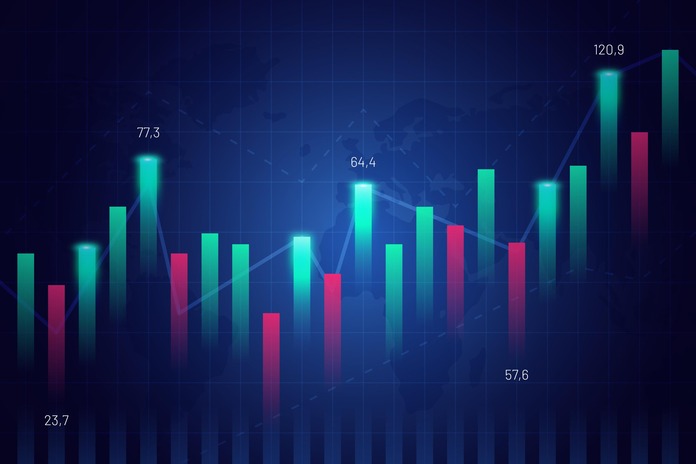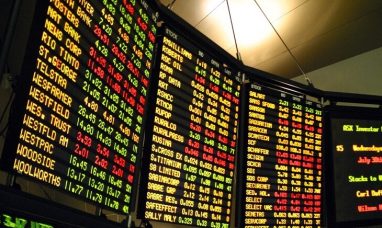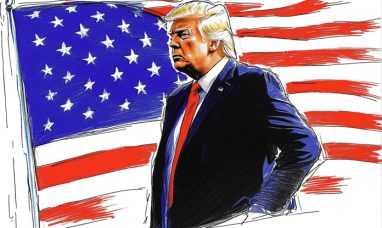Market volatility has returned to Wall Street with a vengeance, as President Donald Trump’s global trade war raises concerns about the long-term stability of the economy. Stocks have been making wild swings, with sharp drops followed by rebounds, only to face new losses. The Dow Jones Industrial Average experienced dramatic movements, including a morning loss of 1,700 points, a subsequent surge of more than 800 points, and then another drop of 414 points. These volatile shifts have left investors on edge as they try to gauge the potential impact of Trump’s trade policies on both domestic and global markets.
The Impact of Trump’s Trade War on Global Markets
The turbulence in U.S. stock markets is part of a broader trend of market volatility seen around the world. As concerns grow about the effects of Trump’s tariffs on the global economy, stocks in major markets such as Hong Kong saw dramatic drops, with a 13.2% plunge marking the worst day for the region since 1997. The price of oil also fell sharply, with a barrel of U.S. crude dropping below $60, the lowest level seen since 2021. Bitcoin, which had previously shown more stability, fell below $78,000, down from its January high of over $100,000.
Trump’s trade war is putting pressure on a variety of sectors, as the tariffs imposed on foreign goods threaten to increase prices for consumers and slow down economic growth. Financial analysts, including JPMorgan CEO Jamie Dimon, warn that these trade measures could push the economy closer to a recession. Dimon notes that while the exact impact of the tariffs remains uncertain, they will likely slow growth and increase inflation.
A Bear Market in the Making?
The S&P 500, a key index that represents many of the investments held by American households, was down more than 3.8% in early trading, continuing a streak of losses that has seen the index drop more than 20% from its recent peak. This significant decline has led to concerns that Wall Street may be entering a bear market. A bear market, defined by a 20% or more drop from recent highs, represents a more serious downturn than the typical 10% corrections that occur regularly in financial markets.
The volatility is exacerbated by the uncertainty surrounding Trump’s trade policies. While some investors hold out hope that tariffs will be reduced after negotiations with other countries, there is no clear path to resolution. Trump’s recent comments on Air Force One suggest that he is not overly concerned about the market’s pain, with the President stating that “sometimes you have to take medicine to fix something.” However, these comments have done little to reassure investors.
The Role of the Federal Reserve
The Federal Reserve, which has often stepped in to stabilize the economy during times of crisis, faces a tricky situation. With inflation higher than usual and interest rates already elevated, the Fed may have fewer tools at its disposal to combat the effects of market volatility. In previous downturns, the central bank has slashed interest rates to boost borrowing and stimulate economic activity, but that option may not be as effective now. Investors are closely watching the Fed’s next moves, as any action it takes could have a significant impact on market sentiment.
Long-Term Outlook: Volatility to Persist
The outlook for the stock market remains uncertain, as the global economy adjusts to the ongoing trade war and its potential consequences. While some experts believe that the market could stabilize once tariffs are reduced or negotiated away, others, like Nathan Thooft, Chief Investment Officer at Manulife Investment Management, predict that market volatility is likely to persist for some time. Thooft suggests that the many countries involved in the trade war will likely retaliate with their own tariffs, creating a prolonged period of uncertainty.
As the market continues to react to President Trump’s trade policies, investors will need to stay vigilant and prepared for more volatility. The trade war, coupled with concerns over inflation and global economic growth, presents a challenging environment for both Wall Street and Main Street. With no clear resolution in sight, the next few months will likely see continued market swings as investors react to the ever-changing landscape of international trade.
Featured Image – Freepik









